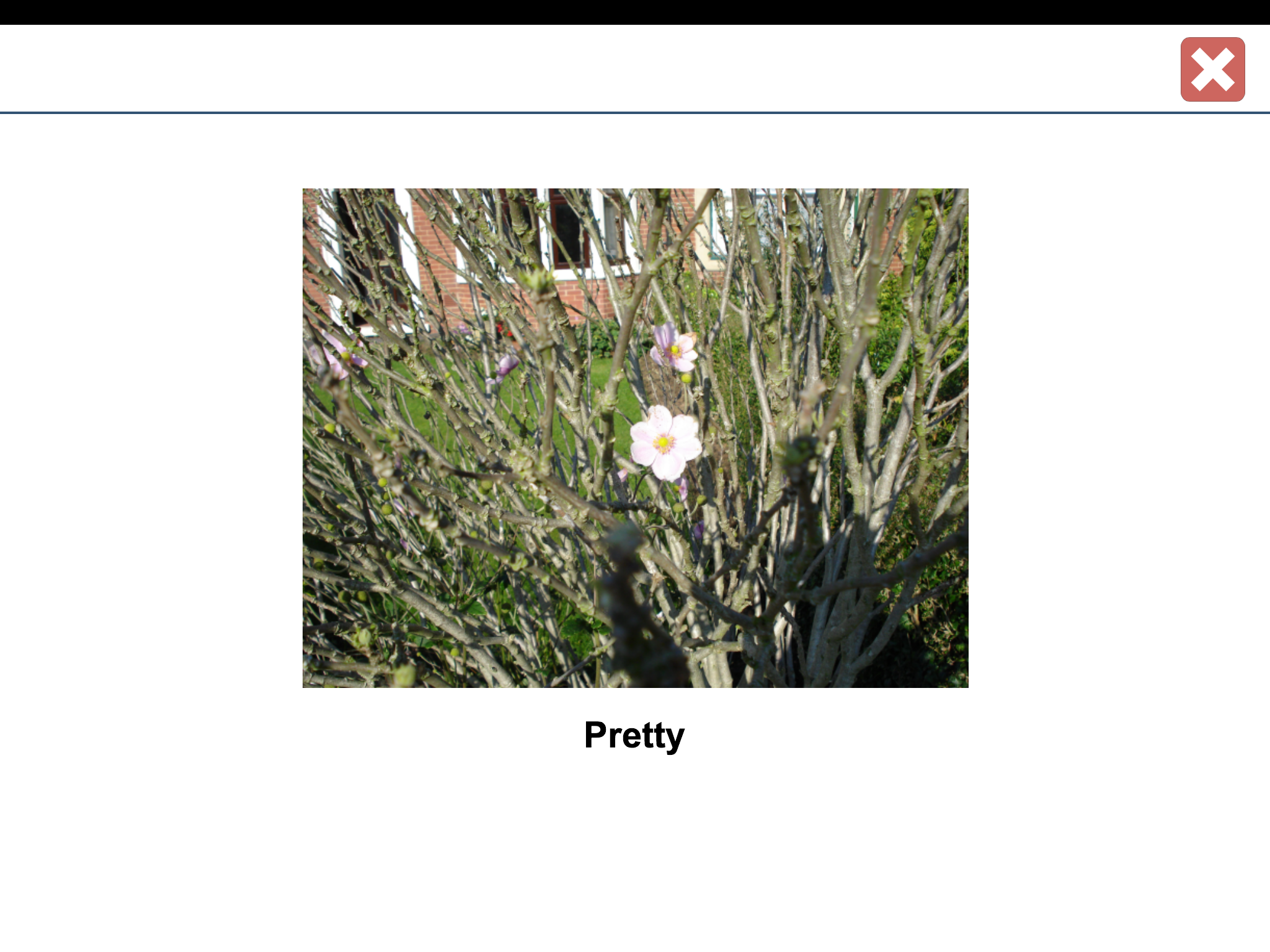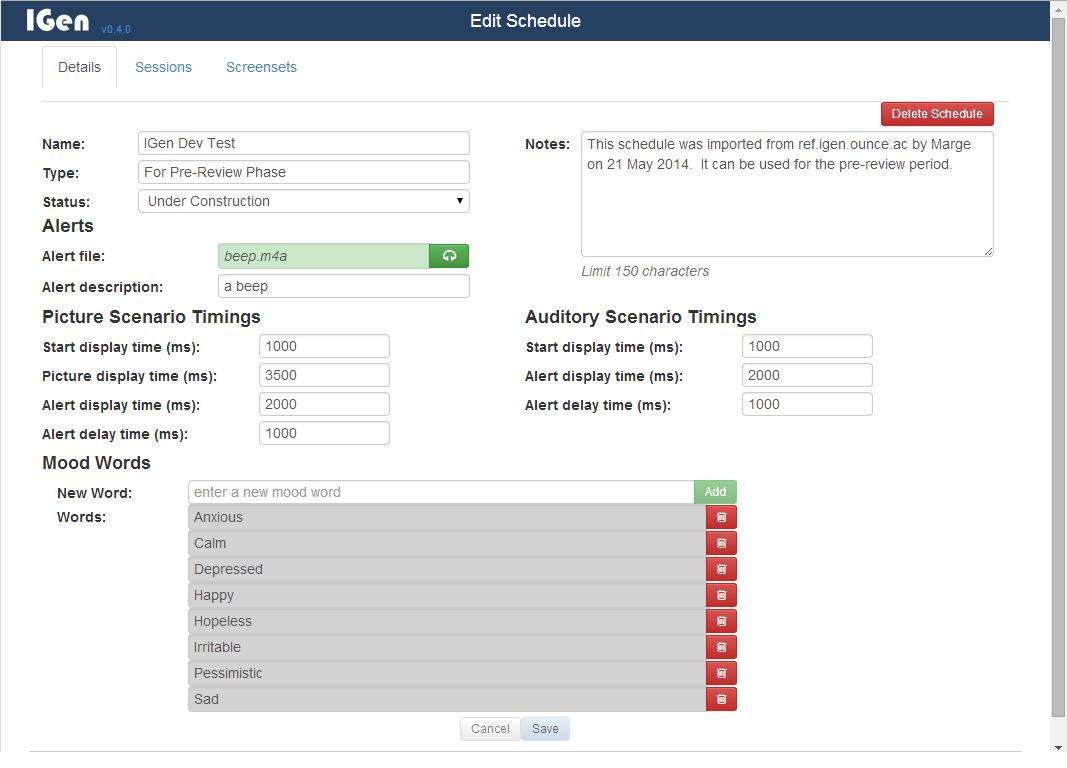Imagery Generation
Client:
University of Oxford, with funding from the National Institute for Health Research
This project is part of a programme of research that examines how changes in thinking style relate to symptoms of depression and anxiety. We built two components to support this research: the first is an installable web application that can be run off-line on any modern browser on a variety of touch-screen tablet devices; and the second is an administrator’s website that controls the behaviour of the web application.
The application delivers a schedule of training sessions over a period of several weeks. Each session presents a number of picture or auditory “scenarios” which are arranged into blocks. Participants are asked to close their eyes and imagine, and then rate the vividness of their image. Data are recorded locally on the tablet, and then automatically uploaded to a remote server.
The administrator’s website allows the researcher to control many aspects of how the research study is run and how the web application behaves. So, for example, the researcher can create new projects, schedules and sessions; assign participants to a schedule; upload images and audio files; edit the text on individual screens in the application; control the timing and order of presentation of the screens; download data for participants, and more.
Key App Features:
- A researcher’s website that can be used to create and customise training schedules for a number of different imagery generation projects.
- An installable web application that delivers training sessions and includes the presentation of both image and audio stimuli and the collection of participants’ responses.
- Sessions can be run while off-line, and data are uploaded when an Internet connection is made.
- Data are uploaded to the server automatically and are then stored on the server in a format that can be easily used in an analysis package.

